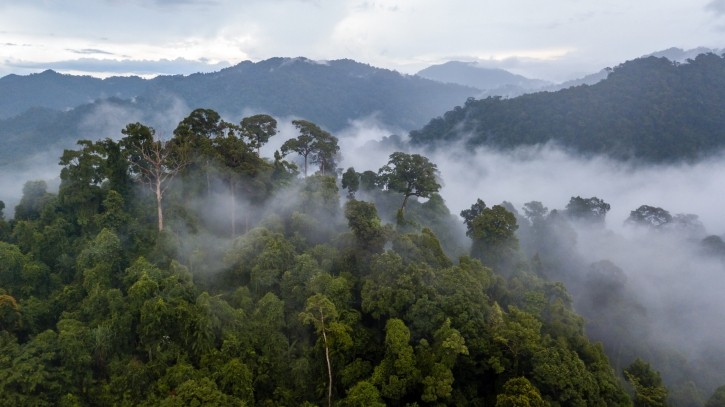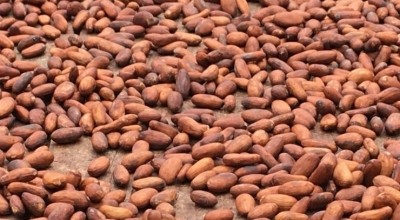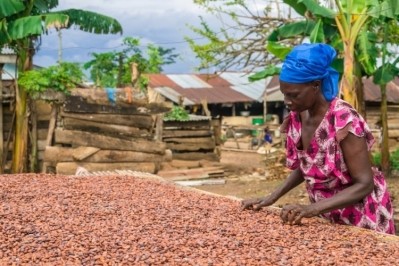Cocoa sector put on notice as European Parliament adopts new law to fight global deforestation

An area larger than the EU was lost to deforestation between 1990 and 2020, with EU consumption causing around 10% of losses, MPs were informed after the European Commission presented its report in 2021.
According to the European Commission's impact assessment, these are the main products imported by the EU from deforested land:
Palm oil 34%
Soya 32.8%
Wood 8.6%
Cocoa 7.5%
Coffee 7%
Rubber 3.4%
Maize 1.6%
While no country or commodity will be banned, companies will only be allowed to sell products in the EU if the supplier of the product has issued a so-called ‘due diligence’ statement confirming that the product does not come from deforested land or has led to forest degradation, including of irreplaceable primary forests, after 31 December 2020.
As requested by Parliament, companies will also have to verify that these products comply with relevant legislation of the country of production, including on human rights, and that the rights of affected indigenous people have been respected.
Penalties for non-compliance shall be proportionate and dissuasive and the maximum fine must be at least 4% of the total annual turnover in the EU of the non-compliant operator or trader.
Cocoa sector response
The legislation has received broad support from the cocoa sector. Chris Vincent, President World Cocoa Foundation (WCF) told Confectionerynews: “Preventing and reversing deforestation is a top priority for the World Cocoa Foundation and its members. The new proposed European legislation will raise the bar in this regard, not least by encouraging efforts to enhance traceability throughout the cocoa sector which will help to drive change. However, the implementation of new legal requirements may pose challenges, particularly for smallholder cocoa farmers who may need additional support. WCF and its members remain determined to deliver transformative impact and systemic reform in reversing deforestation."
The Cocoa Coalition also issued a statement earlier this year in the arguing for effective due diligence legislation, such as the proposed Deforestation Regulation and Corporate Sustainability Due Diligence Directive.
“This covers a wide range of issues, including land and forest governance, land use planning, forest protection, children’s rights, support for farmers and farm organisations, living incomes and national traceability systems. It should also cover agricultural and rural policies, including supply management strategies and measures to offer farmers opportunities other than cocoa production, and the promotion of alternative – sustainable – agricultural models which are less export-dependent and support sustainable community forest management.”
Risk assessment
The new law was adopted by MPs with 552 votes to 44 and 43 abstentions and pending the official publication of the law across the EU, companies will have 18 months to report their risk assessments and implement remediation strategies, or risk economic penalties and potential supply chain disruptions.
After the vote, rapporteur Christophe Hansen (EPP, LU) said: “Until today, our supermarket shelves have all too often been filled with products covered in the ashes of burned-down rainforests and irreversibly destroyed ecosystems and which had wiped out the livelihoods of indigenous people. All too often, this happened without consumers knowing about it. I am relieved that European consumers can now rest assured that they will no longer be unwittingly complicit in deforestation when they eat their bar of chocolate or enjoy a well-deserved coffee. The new law is not only key in our fight against climate change and biodiversity loss, but should also break the deadlock preventing us from deepening trade relations with countries that share our environmental values and ambitions.”
Mighty Earth
Global advocacy organisation Mighty Earth has applauded the vote but said there’s more work to be done to ensure all threatened ecosystems, including grasslands, wetlands, and peatlands are protected.
Alex Wijeratna, Senior Director at Mighty Earth said: “This landmark vote signals a turning point for the world’s forests and for climate change. For the first time Europe is telling business ‘If you or your suppliers destroy forests, you can’t sell your products here.’”
“This is great news for the Indigenous people and wildlife who depend on standing forests for their survival, but also for consumers who have been telling governments and companies that they don’t want to dine on deforestation.”
Cocoa mapping
Sourcemap a global provider of supply chain mapping and monitoring software, announced a 2,000 percent growth in demand for its Anti-Deforestation Platform in response to the landmark EU Deforestation Regulation.
The company’s Responsible Cocoa Platform employs a data-driven approach to supply chain due diligence to reduce the cost and increase the coverage of responsible cocoa sourcing programmes, at every stage of the supply chain, from farmers to consumers.
"The EU's first-of-its-kind deforestation regulation signals a paradigm shift toward 100 percent visible supply chains all the way down to the point of origin," said Marissa Brock, Senior Director of Policy and Government Affairs at Sourcemap. "As similar regulations and directives take effect in Europe and beyond, companies will need enhanced solutions that can unequivocally prove their compliance."
Palm oil
The new law, however, has not been welcomed in some sectors with the Malaysian Government urging the EU to address the concerns of Malaysia and the entire palm oil sector “effectively and expeditiously”.
In a statement Yab Dato Sri Haji Fadillah bin Haji Yusof, Malaysia’s Deputy Prime Minister, and Minister of Plantation and Commodities, said: “The Regulation is a deliberate effort to increase costs and barriers for Malaysia’s palm oil sector, including more than 450,000 smallholders. This ultimately would increase poverty, reduce household incomes and harm our rural communities – outcomes that stand in stark contrast to the EU’s commitments outlined in the UN Sustainable Development Goals."
He said a ‘Small Farmer exemption is needed’. “The EU should commit to a genuine exemption for smallholders in the European Union Deforestation Regulation. This would prevent large European importers from cutting smallholders out of supply chains – an entirely avoidable consequence should small farmers be given proper consideration.”
Malaysia remains open to engagement with the European Union to address these concerns, he said. “The EU must now commit to genuine involvement for both governments and industries from producing countries, including as part of the ongoing Deforestation Platform.”






